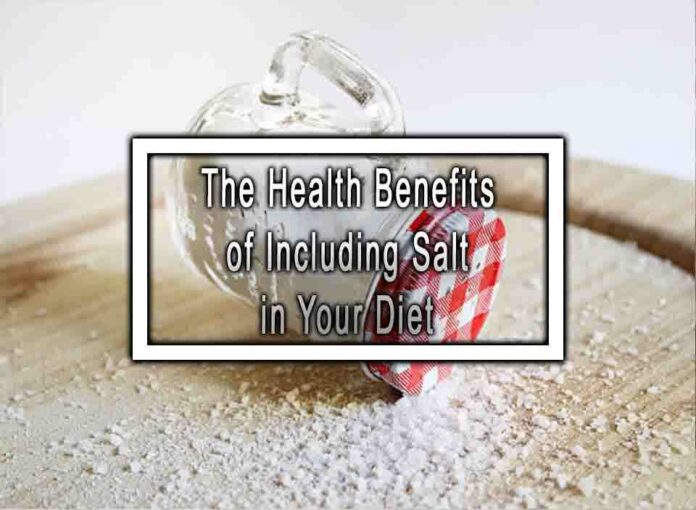Salt is an essential mineral that plays a crucial role in maintaining various bodily functions. While excessive salt intake can lead to health issues like high blood pressure and cardiovascular disease, consuming salt in moderation can offer several health benefits. Here are some reasons why including salt in your diet can be beneficial:
1. Electrolyte Balance:
- Salt, also known as sodium chloride, helps maintain proper electrolyte balance in the body. Electrolytes are essential for nerve function, muscle contractions, and overall fluid balance.

2. Fluid Regulation:
- Sodium helps regulate the amount of fluid in and around your cells. It works in conjunction with other electrolytes to maintain proper hydration levels, which is vital for various bodily functions.
3. Nerve Function:
- Sodium is necessary for the proper functioning of nerve cells. It helps transmit electrical signals between nerve cells and other cells, enabling various processes like muscle contractions and sensory perception.
4. Muscle Contractions:
- Sodium is involved in muscle contractions, including those of the heart. Adequate sodium levels are necessary for maintaining a regular heartbeat and preventing muscle cramps.
5. Digestion and Absorption:
- Sodium helps in the absorption of certain nutrients in the small intestine, including glucose and certain amino acids. It also aids in the proper function of stomach acid.
6. Adrenal Function:
- Adequate sodium intake is important for maintaining adrenal gland function. The adrenal glands produce hormones that regulate stress response, metabolism, and blood pressure.
7. Blood Pressure Regulation:
- While excessive salt intake can contribute to high blood pressure (hypertension), consuming salt in moderation is essential for maintaining healthy blood pressure levels. The key is to strike a balance between sodium intake and potassium intake.
8. Enhanced Flavor and Palatability:
- Salt enhances the flavor of foods, making them more enjoyable to eat. It can help bring out the natural flavors of ingredients and make dishes more satisfying.
9. Low Sodium Diet and Health Concerns:
- While some individuals need to monitor their salt intake due to health concerns like hypertension or kidney disease, completely avoiding salt can lead to imbalances in electrolytes and impact overall health.
10. Natural Salts and Trace Minerals:
- Some forms of salt, such as sea salt or Himalayan pink salt, contain trace minerals that can provide additional health benefits. These minerals can contribute to overall nutrition.
Important Note:
- While including salt in your diet can be beneficial, it’s essential to use salt in moderation. Excessive salt intake can contribute to health issues such as high blood pressure, heart disease, and kidney problems. The recommended daily intake of sodium for most adults is around 2,300 milligrams (about 1 teaspoon of salt), but individual needs may vary based on factors like age, health conditions, and physical activity levels.
Balancing your salt intake with a well-rounded, nutrient-rich diet and staying mindful of hidden sources of sodium in processed foods is essential for maintaining good health. Always consult with a healthcare professional or registered dietitian to determine the right salt intake for your individual needs.












